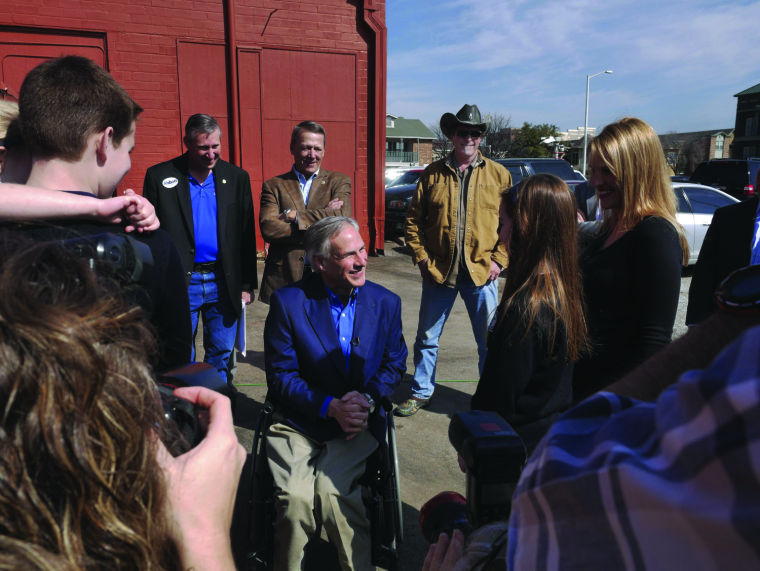Abbott likens South Texas to undeveloped nations, not accurate
Hearing that Attorney General and frontrunner for governor Greg Abbott recently said that South Texas resembles a third-world country feels a lot like when someone else calls your sibling a mean name: only you can talk about your sibling like that because they’re your sibling. The minute someone else does it, it’s not okay.
I’m from South Texas, and that’s the way I feel about Abbott’s comment.
A lot of what you see in the news about South Texas is not far from the truth. When you merely scrape its surface, South Texas can fulfill a lot of stereotypes.
Yes, our Hispanic population is very dense. My hometown, Laredo, was once listed on Huffington Post as the number one least diverse city in the nation with 95.7 percent of the population being Hispanic.
Yes, there is a drug war. It goes on primarily on the other side of the border, but sometimes, it seeps through the bridges over to Texas. In 2013, Nuevo Laredo was listed number eight in Business Insider’s article, “The 50 Most Violent Cities in the World.” It’s five minutes away from my home.
I understand it’s not normal when conversations in Laredo are often sprinkled with names of people who were abducted, carjacked or arrested. However, I don’t think growing up in South Texas has hindered me in any way. I can tell you the obvious problems with South Texas, but those get written about all the time.
What people don’t write about is about how being from South Texas often means participating in two cultures. It means you can’t eat a burger without jalapeños and you like refried beans on your hot dogs.
It means you’ll run into a lot of people at mass on Sundays because going to church with your family is a tradition.
It means calling your friends’ parents “tio” or “tia,” and saying hi to everyone with a kiss on the cheek. It means pronouncing Spanish words on the menu in Spanish.
Even at it’s worst, comparing South Texas to a third-world country is not doing it justice. I’m no expert, but I wouldn’t immediately describe South Texas as a place with a high mortality rate, low economic development and high levels of poverty. Our government, which is the same government as the rest of Texas, is not unstable when compared to that of a third world country’s. The rates of population growth, illiteracy and disease in South Texas do not merit Abbott’s comment.
I’m not upset because, metaphorically, he insulted my “sibling” when only I can do that. I’m upset because I fail to see why someone running for governor is so quick to write off an entire cardinal direction.
If I’m going to give Abbott any credit, it will be for the fact that he compared the corruption in South Texas to that of a third world country’s, not the area in general. Either way, saying South Texas is similar to a third world country in any sense of the phrase is still not okay.
There are plenty of questions I have for Abbott: Have you ever been to a third world country? Have you ever lived in South Texas? And by “lived,” I mean constantly swam against the current of stereotypes people stick on your forehead as soon as you say you’re from the Rio Grande Valley or Laredo.
Abbott’s comment wasn’t a slip-up that someone happened to have caught. It was a thought-out, intentional comment in a prepared speech.
If Abbott was going for the whole “no press is bad press” thing, I guess he got what he wanted. I’m still writing about it.
However, I’m from South Texas. It’s not a third world country, keyword being Texas. When you call out a part of Texas that way, you make us all look bad.
Follow me on Twitter @lyannealexia







